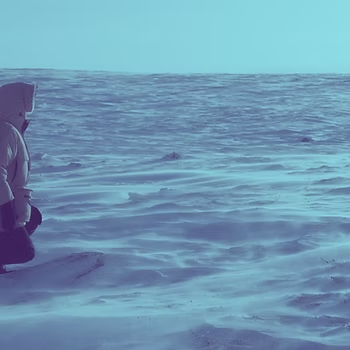"So the wind won’t blow it all away" by rob mclennan
- Jul 24, 2022
- 4 min read

Only man, the pinnacle of creation, has the capacity to alter his world by wielding a sentence.
Etgar Keret, trans. Jessica Cohen, “The Greatest Liar in the World”
1.
Once again, Nadine reminds him that on the first of every month, one is supposed to say “rabbits, rabbits, rabbits.” If you wish for good luck for the whole of the month, this is how you begin. And if you hear these words on the first of the new year, you will have good luck for the whole of that year.
Caleb looks down at his shoes. He has never believed in luck, other than as a function of happenstance and perspective. Luck presumes some larger hand at work in the universe, directing our movements and moments: as either punishment or reward, providing opportunity or karmic justice. At times, simultaneously. Too often, he’s realized, any notions of deities become confused with genies. God, if he or she exists, is not there to grant wishes.
2.
His was a sequence of pragmatic gestures: ten years married to his high-school sweetheart. When they were in grade ten math class, one of her self-owns was that she had memorized her library card number. This was enough for him, right there. From this small, unremarkable fact, how he fell head over heels.
3.
Caleb had developed their lot into a panacea of tulips, although he’d organized an assemblage of other flowers as well: hydrangea, roses, chamomile, cosmos, calendula, daylilies, dahlias. A small vegetable patch along the back hedge. The transplanted rhubarb. But at the heart of his enterprise: a flow of tulips, rolling up and along their suburban boundary.
His mother had laid the foundation of what would be a life-long engagement. She’d always proffered a cavalcade of tulips in the front of their yard, a backdrop regularly featured in local newspaper photographs and family portraits. The tulip had evolved into a personal token for his grandmother, something she had clearly gifted to her own children. Caleb always remembers her site as more delicate, porcelain. Born in Amsterdam, she had landed here, five years prior to the Second World War. Around her small house in New Edinburgh, carefully curated red and yellow tulips lining her front step, and around the side by the hedge.
On her part, Caleb’s mother had tulips on everything, from sweater patterns to plates to decorative spoons. “My mother had tea once with Princess Juliana,” she repeated. “Her daughters went to school with my sisters.” She mentioned this often, especially during those last few years, as she poured tea into her favourite mug: adorned with the logo for the Canadian Tulip Festival. Her home care support worker had recommended she retire her more elegant tulip china set, which Caleb’s eldest sister, Julia, inherited.
In Caleb’s garden, a bedrock of tulips. Garden tulip. Parrot Tulips. Tulipa greigii. Flax-leaved tulip.
4.
No one is going to want to read novels set during the pandemic, he tells her. Nadine disagrees, although she isn’t necessarily in a hurry to read fiction from this particular period, either. What might that even look like? A sequence of stories from hospitals and nursing homes examining political inaction, preventable death and hero front-line workers, or the unending days in enforced isolation, and how it breaks down the body and erodes our spirit. Perhaps a political thriller, where an anti-masker gets Covid-19, and their small group receives their comeuppance. Why would anyone care?
Perhaps it will be a book about time itself, and the realization that time is elastic. The realization that the possibilities of positive change were there the whole time; it was just there for the taking.
5.
After a particularly warm stretch of days, another thick snow. Ten to fifteen centimetres. It coats every surface. Caleb notes that it covers their garden, the birdfeeders, and the wheelbarrow left out by the woodshed. Caleb’s mother sleeps.
After his mother died, he spread her cremated remains through the flowerbeds, as they had discussed. She liked the idea of feeding his flowers. Grey ash and bone, turned into the roots. For Caleb, it was the opportunity to keep her compartmentalized, close. If she was ever too much, he could return to the house. He came to think of her as Demeter, set to wake, once again, with the warm weather.
Nadine doesn’t care to think about the garden, nor of Caleb’s mother. But for waving her hands to show off as part of her summer garden parties, Nadine doesn’t spend much time back there, preferring to spend her free time during the warmer months on the front verandah, whether reading a book or working a crossword. She greets passers-by. The tulips held none of her interest. The tulips, and his creepy dead mother.
6.
When he was thirteen years old, Caleb’s parents sent him to spend New Year’s Eve with his widowed grandmother. They watched Gone with the Wind on television, timed to end just prior to Times Square, as the ball dropped to signal the annum, turning its yearly page. Once it landed, she crooned “Auld Lang Syne” and danced around the living room, slow hands into soft air.
She opened the back door of her bungalow to sweep out the old year, before returning to open the front door, to greet the new. Wooden shoes, set by the side entrance. The idea was to remove all the negative energies of the old, so the positives of the fresh, new year could properly enter. It was 2003, and his grandmother would be dead before the first bloom of spring.





Comments